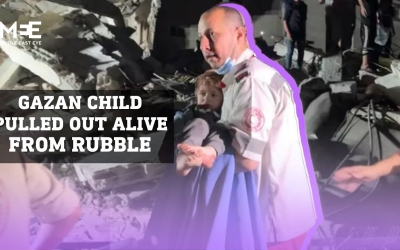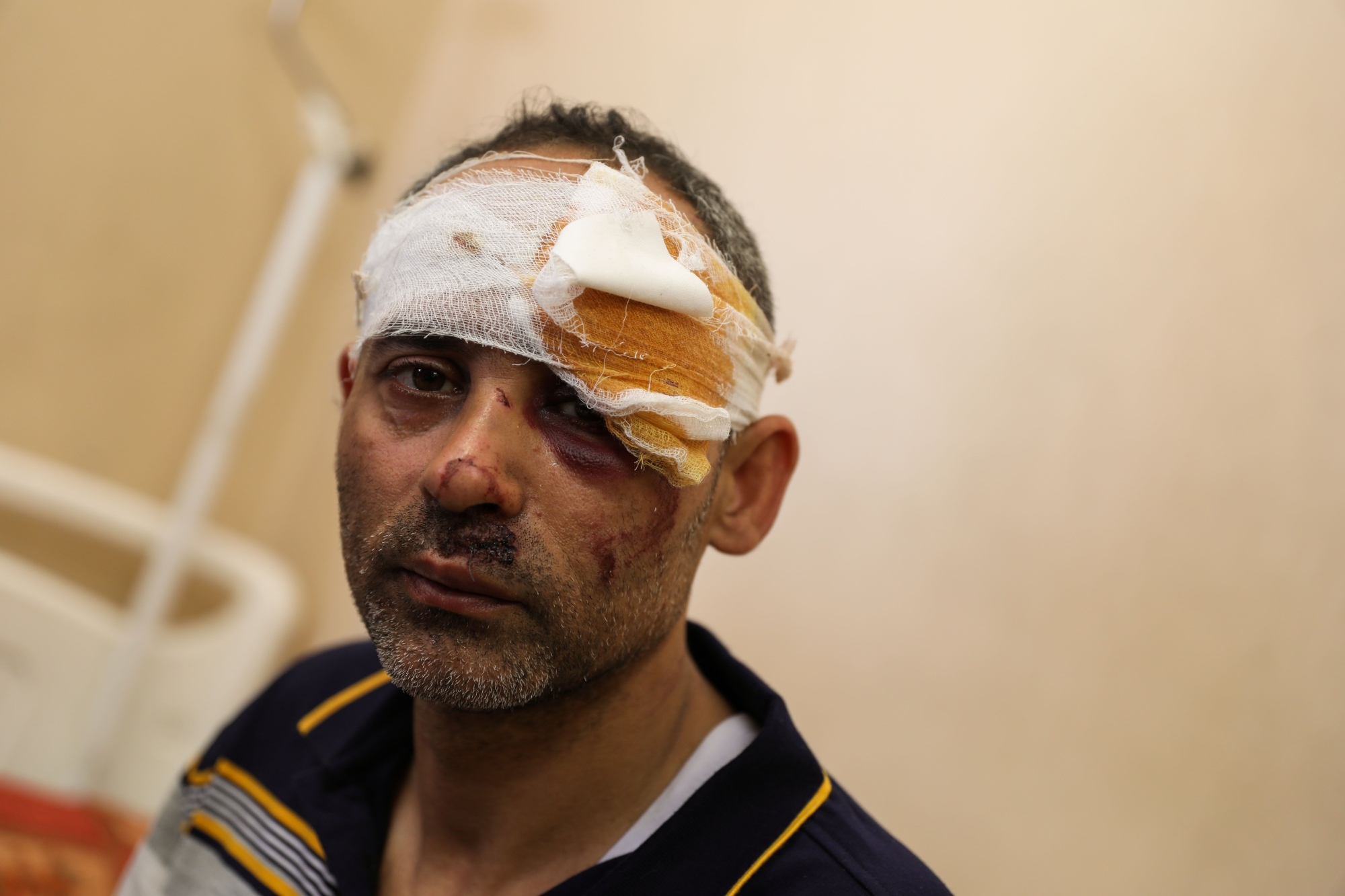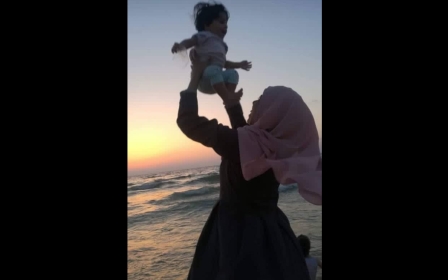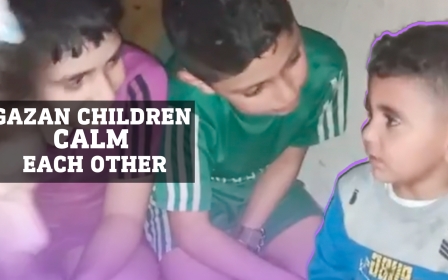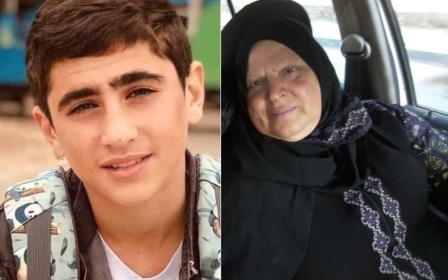Israel-Gaza: Palestinian father and daughter are family's only survivors of deadly air strike
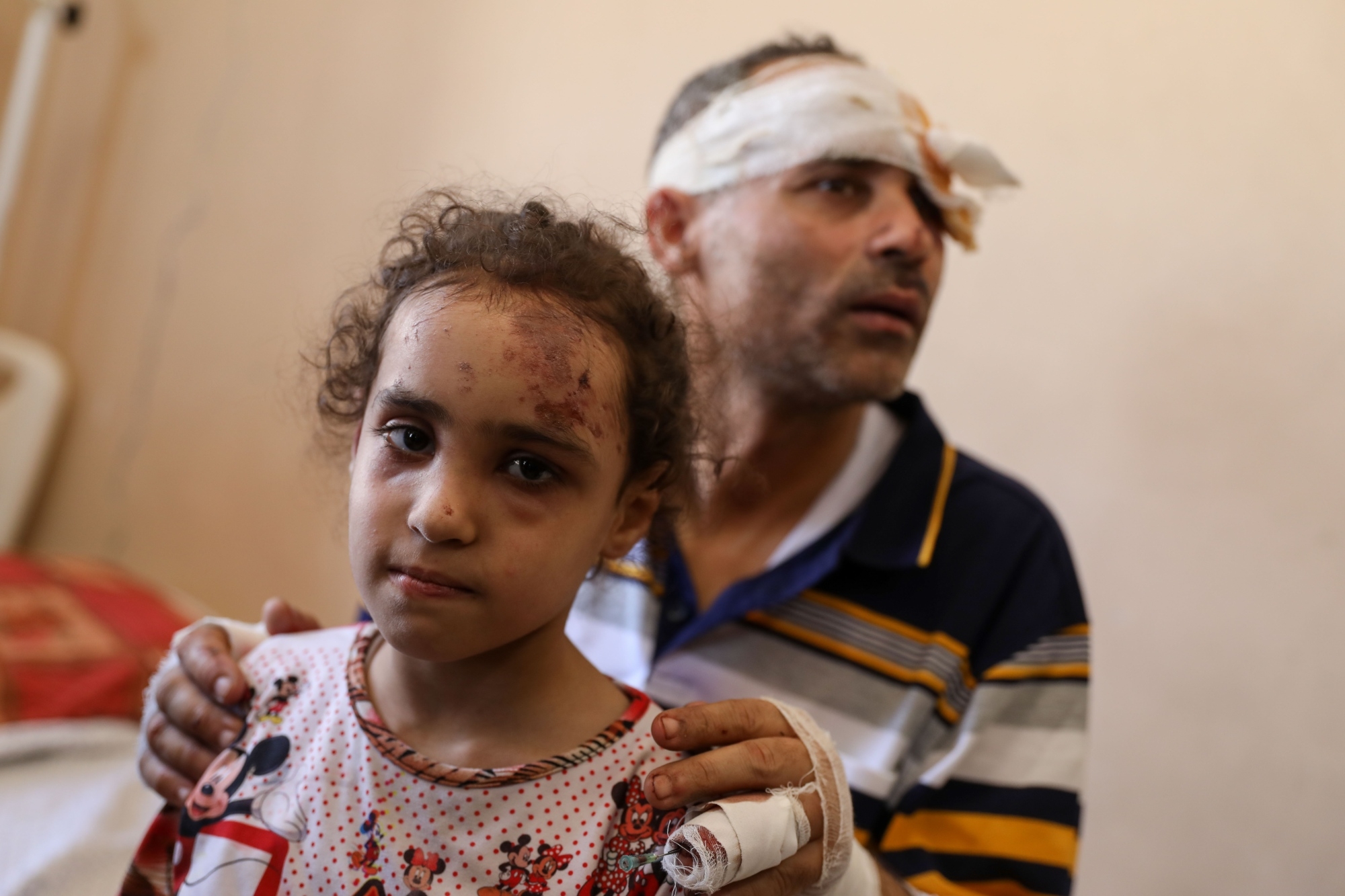
Riad Eshkuntana spent seven hours trapped under the debris of his home, hearing the voices of his wife and children growing progressively fainter before he was rescued.
The Eshkuntana family lived in one of the numerous buildings in the besieged Gaza Strip that have been targeted by the Israeli army since 10 May.
“I was sitting safely at home along with my wife at around 1am, and the children went to sleep in their room. We were shocked by an Israeli missile hitting our home,” Eshkuntana, 46, told Middle East Eye of the events that took place in the early hours on Sunday on the densely populated al-Wahda street in the centre of Gaza City.
“My wife rushed to the children to protect them, but one of my daughters fled to another room. With the second missile, the house was split into two parts… There were three floors above our apartment, the house collapsed and we were under the rubble.”
According to the Gaza-based Ministry of Health, 219 Palestinians have been killed by Israeli attacks on the small coastal enclave in the span of 10 days - including 63 children and 36 women.
Among them are Riad’s wife, Abir Nimr Eshkuntana, 30, and four of their children: Dana, 9, Yahya, 5, Lana, 6, and Zayn, 2.
“I wished to die and was praying to God to take my soul as soon as possible because I realised that my wife and children were dying,” Eshkuntana said. “At first, their voices were loud, calling for me to save them. But they gradually got softer and softer, and I was helpless under the rubble.”
Eleven hours after the air strike that killed the rest of the family, Eshkuntana’s five-year-old daughter Suzi was finally pulled from the rubble.
‘God left her to make it up to me’
According to Eshkuntana, between 30 and 40 people were in the four-storey building when it was bombed on Sunday.
The air strikes were part of the intense bombardment of al-Wahda street, one of the vital commercial and residential arteries of Gaza City.
As a result, at least 42 Palestinians, including 10 children and 16 women, were killed in overnight air strikes between Saturday and Sunday, the Gaza Ministry of Health stated.
According to local reports, there was no prior warning that the building would be targeted.
Mai Rajab, a neighbour, told MEE that after the air strike hit the Eshkuntanas' building, her home, only one meter away, caught fire.
"When I suddenly heard an explosion. I thought to myself that maybe it is far like always, but the sound was getting closer," she explained.
“Suddenly there was fire and ash in my room,” she said. “I did not know what to do, I rushed back to my room where I had already packed my bag. I took my clothes and scarf to cover myself and rushed outside.
“I ran barefoot from the fifth floor and we finally reached the street by miracle. But we were shocked that there had been a massacre in the house just next to ours.”
Four hours after he was transferred to hospital, Eshkuntana learned that his daughter Suzi had also survived.
“I was sure that they were all killed. I could not believe that she had survived until I saw her,” the Palestinian father said. “I could not believe it when I was rescued, it was a miracle. I knew that God had rescued me so that I could take care of the one daughter who survived.
“When they brought her, I felt that my family was complete. God left her to make it up to me.”
Three days after the attack, Suzi remains at the al-Shifa hospital in Gaza City, recovering from various wounds in addition to severe trauma.
'Can you imagine that a five-year-old child remained hanging upside down under the rubble for 11 hours?'
- Riad Eshkuntana, speaking about his daughter, Suzi
“Can you imagine that a five-year-old child remained hanging upside down under the rubble for 11 hours?” Eshkuntana said. “Now she is in complete shock and cannot speak after what she has been through.”
Eshkuntana himself sustained serious fractures to his spine and ribcage and lost 70 per cent of his sight in one eye. Yet he insisted that his suffering was only a fraction of what Palestinians in Gaza have suffered in nearly 14 years of Israeli-led blockade and three wars.
“What can I say? What I have lost is nothing compared to what my people are losing,” he said. “The Israeli government is trying to maximise the number killed in Gaza as much as it can.”
Rajab recalled some of her last memories of the Eshkuntana children who died in the attack.
“Riad’s mother lives in an apartment in our building. During Ramadan, they used to visit each other and stay up late, and the children loved to stay with their grandmother. Now their life has turned into ashes, just like their home."
Eshkuntana strongly rejected the Israeli claim that its air strikes on Gaza target the Hamas movement running the Palestinian enclave.
“I am just a worker and I am not affiliated with either Hamas or Fatah. I just go to work and come back home by the end of the day to sit with my wife and children,” he said. “Did these children do anything wrong? What did they do for Israeli to destroy four storeys above their heads?”
This article is available in French on Middle East Eye French edition.
Middle East Eye delivers independent and unrivalled coverage and analysis of the Middle East, North Africa and beyond. To learn more about republishing this content and the associated fees, please fill out this form. More about MEE can be found here.


